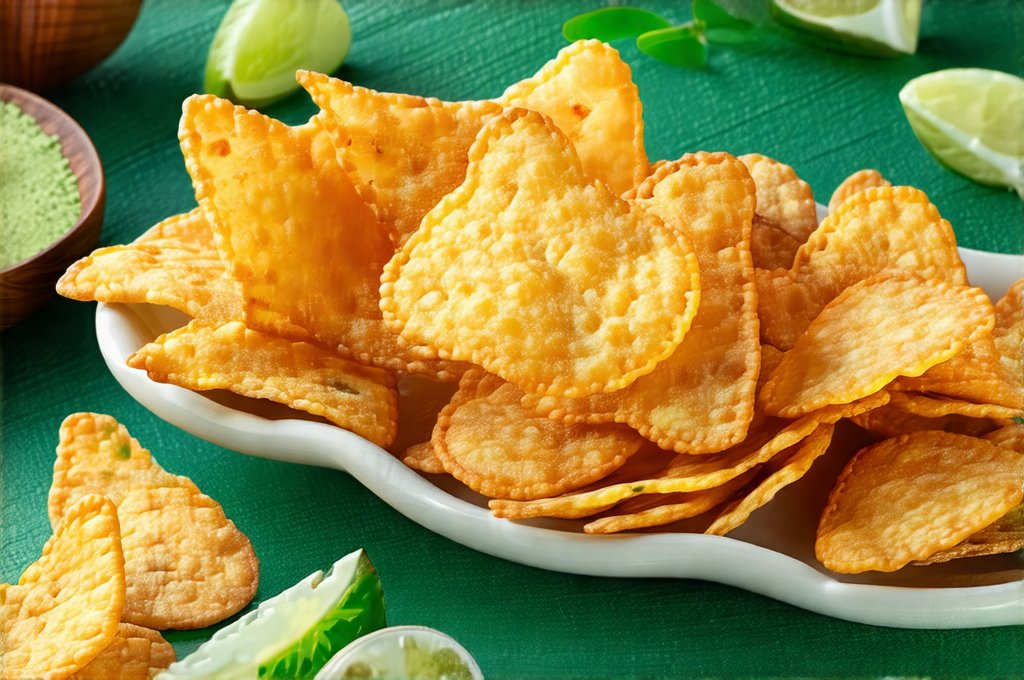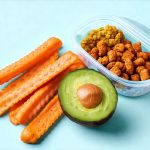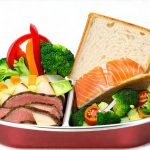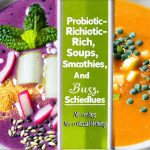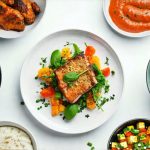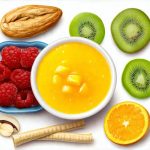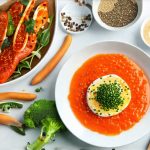The modern lifestyle often demands efficiency – we’re constantly on the go, juggling work, family, social commitments, and everything in between. This fast-paced existence frequently leads to rushed meal choices, relying heavily on convenience foods that may not always prioritize our well-being, particularly the health of our gut. A healthy gut is increasingly recognized as fundamental to overall health; it impacts digestion, immunity, mental wellbeing, and even chronic disease risk. However, maintaining a gut-friendly diet while navigating a busy schedule can feel challenging. This article explores portable snack options that are not only efficient for on-the-go consumption but also actively support gut health, offering a balanced approach to nourishment amidst the hustle.
Many readily available snacks are loaded with processed sugars, unhealthy fats, and artificial ingredients – all of which can negatively impact our gut microbiome, the complex ecosystem of bacteria residing in our digestive tract. When this microbiome is out of balance (dysbiosis), it can lead to digestive discomfort, reduced nutrient absorption, and a weakened immune system. The key lies in choosing snacks that promote diversity within the gut, providing prebiotics – fibers that feed beneficial bacteria – and potentially incorporating probiotics – live microorganisms themselves. We’ll delve into practical choices, focusing on whole, unprocessed foods that deliver both convenience and nutritional value, empowering you to nourish your gut even when time is short. Considering what we eat can help us avoid foods that relax the les which can exacerbate issues.
Building a Gut-Friendly Snack Arsenal
The foundation of portable, gut-friendly snacking lies in understanding the components that support digestive health. It’s not just about avoiding ‘bad’ foods; it’s equally about actively including beneficial ones. Think beyond simply grabbing whatever’s easiest and consider how your snack choices contribute to a thriving gut microbiome. This means prioritizing fiber-rich fruits and vegetables, fermented foods (where appropriate for portability), healthy fats, and minimizing added sugars and artificial sweeteners. Planning ahead is crucial – dedicating even 15 minutes each week to prepping snacks can make a significant difference in your ability to maintain consistent, healthy eating habits while on the move. It’s important to think about whether favorite snacks might be contributing to discomfort.
A core principle of gut health snacking is variety. Just like any ecosystem, the gut microbiome thrives on diversity. Regularly incorporating different types of fiber-rich foods encourages a wider range of beneficial bacteria to flourish. This isn’t about strict adherence to a diet; it’s about mindful choices that support your overall wellbeing. Consider rotating your snack options throughout the week to ensure you’re providing a broad spectrum of nutrients and prebiotics for optimal gut health. For example, one day might feature apple slices with almond butter, while another could include carrot sticks with hummus or a small container of yogurt with berries. Choosing snacks that calm the stomach can make a significant difference in how you feel throughout the day.
The convenience factor shouldn’t come at the expense of nutritional value. Many commercially packaged “healthy” snacks are often highly processed despite their marketing claims. Always read ingredient lists carefully, paying attention to added sugars, unhealthy fats (hydrogenated oils, trans fats), and artificial ingredients. When possible, opt for whole food options or minimally processed alternatives. Making your own snack mixes or portioning out single-serving containers of nuts, seeds, and dried fruit can give you greater control over what you’re consuming. Remember that small changes, consistently applied, can have a significant impact on both gut health and overall wellbeing.
Snack Prep Strategies for Busy Lives
Effective snack preparation isn’t about elaborate recipes; it’s about streamlining the process to make healthy choices effortless. One of the most effective strategies is batch prepping – dedicating a specific time each week (e.g., Sunday afternoon) to prepare several snacks at once. This might involve washing and chopping vegetables, portioning out nuts and seeds into individual bags, or making homemade granola bars. Pre-portioned snacks eliminate impulsive unhealthy choices when hunger strikes.
Here’s a simple step-by-step guide for efficient snack prepping:
1. Plan your snacks for the week based on your schedule and preferences.
2. Create a grocery list focusing on whole foods and gut-friendly ingredients.
3. Wash, chop, and portion out your snacks into reusable containers or bags.
4. Store prepared snacks in easily accessible locations – your pantry, fridge, or work bag.
Consider investing in reusable snack containers and bags to reduce waste and make transporting snacks easier. Clear containers allow you to quickly identify what’s inside, while leak-proof options prevent messy mishaps on the go. Don’t underestimate the power of a well-stocked snack drawer at work – it can be a lifesaver when cravings hit during busy periods. We also need to consider foods that harm long term even if they seem harmless in the moment.
Portable Probiotic & Prebiotic Powerhouses
While prebiotics are readily found in many fruits and vegetables, incorporating probiotics into portable snacks requires a bit more consideration. Fermented foods like yogurt (especially Greek yogurt) and kefir are excellent sources of probiotics but require refrigeration to maintain their beneficial bacteria. Look for travel-sized containers or insulated lunch bags with ice packs to keep them cool. Alternatively, some shelf-stable probiotic drinks are available, though it’s important to check the label for live culture counts.
Prebiotic-rich snacks offer a fantastic foundation for gut health and are generally easier to pack:
– Bananas: A convenient source of prebiotic fiber.
– Apples: Offer pectin, another type of prebiotic fiber. Pair with nut butter for added protein and healthy fats.
– Berries: Rich in antioxidants and fiber.
– Oats: Overnight oats prepared the night before are a portable and filling option.
– Nuts & Seeds: Provide fiber, healthy fats, and minerals. Choose raw or dry-roasted varieties to avoid excessive oil.
Beyond the Basics: Creative Combinations
Don’t limit yourself to single-ingredient snacks! Combining different gut-friendly foods can create satisfying and nutritious options that keep you feeling fuller for longer. For example, a small container of Greek yogurt with berries and a sprinkle of chia seeds provides probiotics, antioxidants, fiber, and healthy fats. Similarly, apple slices dipped in almond butter offer a balance of sweetness, protein, and fiber. Homemade trail mix featuring nuts, seeds, dried fruit (in moderation), and even a few dark chocolate chips can be a satisfying and energy-boosting snack. Considering cooking oils is also important when preparing snacks that require cooking.
Think about layering textures and flavors to enhance the snacking experience. Crunchy elements like nuts or seeds provide textural contrast to softer foods like yogurt or applesauce. Spices like cinnamon or ginger can add flavor and may also have digestive benefits. Experiment with different combinations to find what you enjoy most, ensuring that your snacks are both nourishing and enjoyable. Remember, consistency is key, so finding options you genuinely like will make it easier to stick to a gut-friendly snacking routine. And if you experience issues beyond just digestion, consider whether GERD and swollen lymph nodes could be connected. Also, don’t forget about top comfort foods that are safe for reflux!

